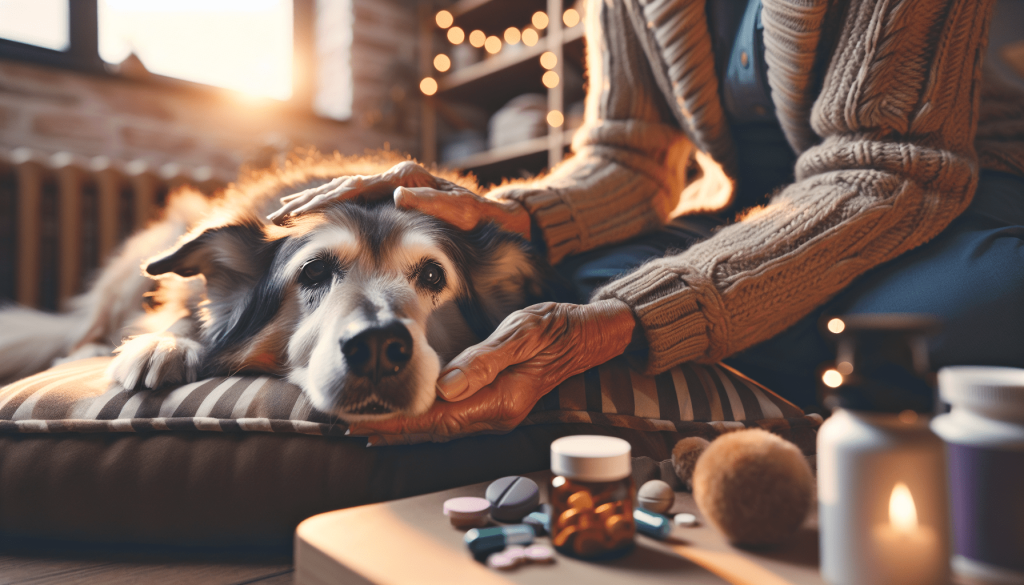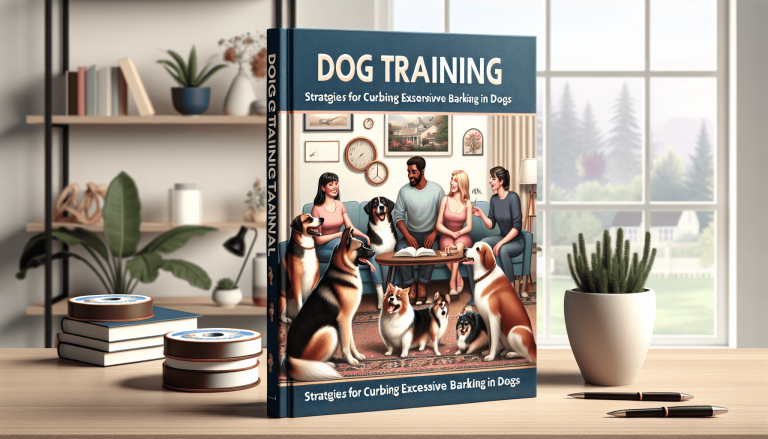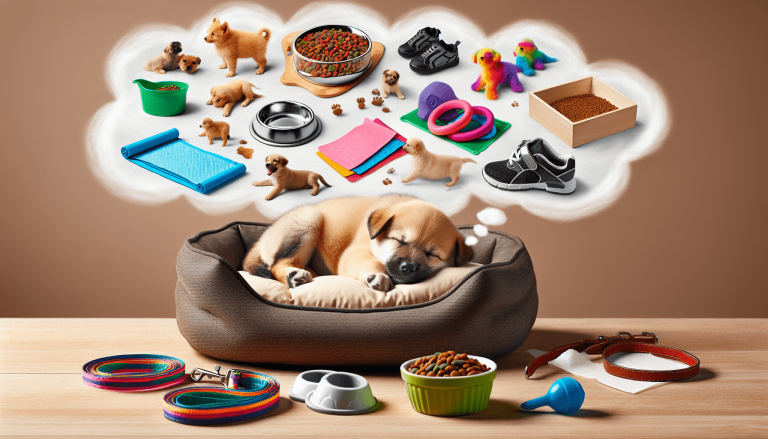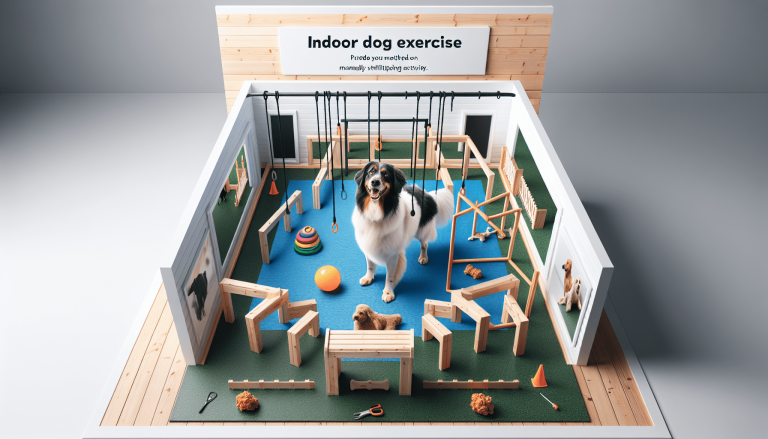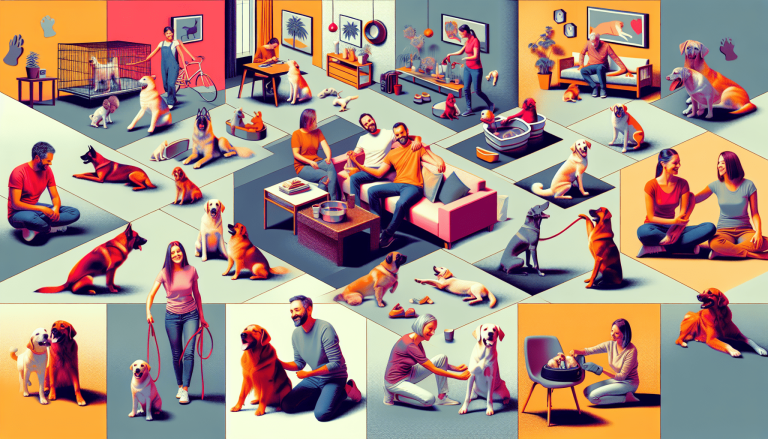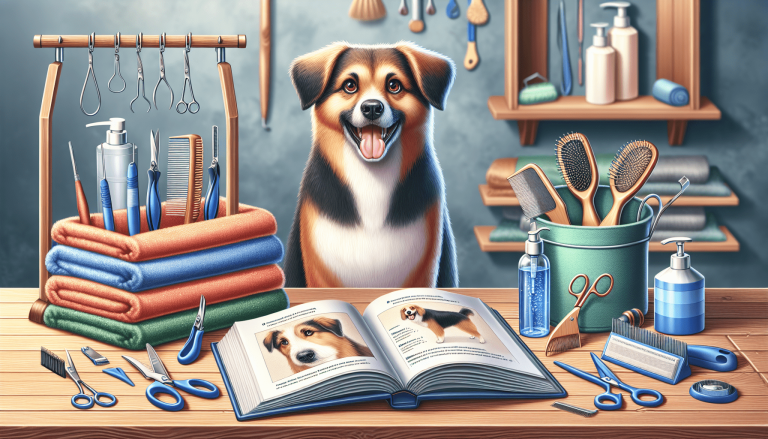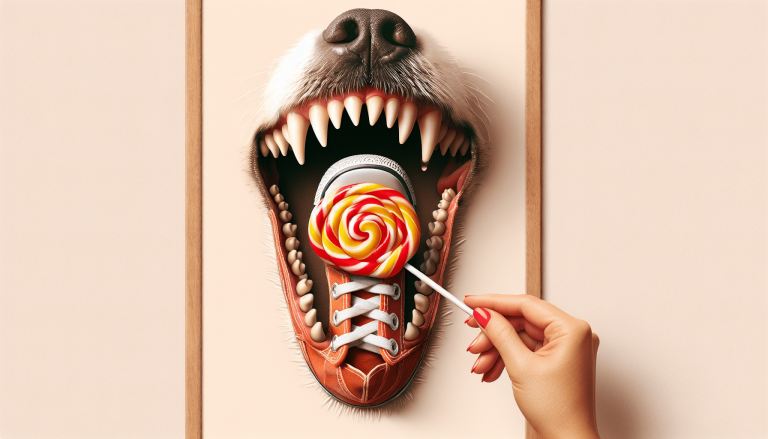As your furry companion starts to age, it is important to adapt your care to meet their changing needs. From adjusting their diet to providing extra exercise, there are various ways you can ensure your senior dog’s well-being. In this article, we’ll explore some valuable tips and strategies to help you create a comfortable and fulfilling life for your aging pet. From monitoring their health to creating a safe and supportive environment, these tips will guide you in providing the best possible care for your beloved senior dog.
Table of Contents
ToggleRegular Veterinary Check-ups
Maintaining a schedule
As your furry friend enters their golden years, regular veterinary check-ups become even more important. Just like humans, dogs can develop age-related illnesses and conditions that may require medical attention. By maintaining a schedule of regular check-ups, you can ensure that your senior dog receives the best possible care and any potential issues can be detected early on.
Importance of regular check-ups
Regular veterinary check-ups are crucial for senior dogs as they can help prevent and detect various health issues. During these check-ups, your vet will conduct a thorough physical examination, checking your dog’s heart, lungs, teeth, and overall body condition. They may also conduct blood tests and other diagnostic tests to assess your dog’s internal health. These visits provide an opportunity for your vet to discuss any concerns or changes you’ve noticed in your dog’s behavior, appetite, or mobility.
Detecting and managing health issues
By scheduling regular check-ups, you increase the likelihood of detecting health issues in their early stages. Many age-related conditions such as arthritis, dental disease, kidney disease, and heart problems are more easily managed if detected early. Regular check-ups allow your vet to identify these potential issues and develop a plan for managing them to ensure your dog’s well-being.
Monitoring medication and supplements
Senior dogs often require medication or supplements to manage various health conditions. Regular check-ups allow your vet to monitor the effectiveness of these medications and adjust dosages if needed. They can also recommend additional supplements that may be beneficial for your dog’s overall health. By staying in close contact with your vet, you can ensure that your senior dog’s medication and supplement routine remains up-to-date and effective in supporting their well-being.
Balanced Diet and Proper Nutrition
Consulting with a veterinarian for dietary recommendations
As your dog ages, their dietary needs may change. Consulting with a veterinarian is crucial to ensure your senior dog receives a balanced diet that meets their specific nutritional requirements. Your vet can provide recommendations on the right type of food, portion sizes, and any necessary supplements to keep your dog healthy and thriving.
Choosing appropriate senior dog food
Senior dog food is specially formulated to meet the nutritional needs of aging dogs. It typically contains fewer calories to prevent weight gain, higher levels of joint-supporting nutrients, and easily digestible ingredients. Your veterinarian can recommend specific brands or types of senior dog food that are suitable for your dog’s age, breed, and any existing health conditions.
Managing weight and portion control
Maintaining a healthy weight is essential for your senior dog’s overall health and longevity. Obesity can lead to various health problems, such as arthritis and heart disease, while being underweight can indicate other underlying health issues. Your vet can help you determine your dog’s ideal weight and provide guidance on portion control to ensure they are getting the right amount of food.
Providing necessary vitamins and supplements
In addition to a balanced diet, senior dogs may benefit from certain vitamins and supplements. These can help support joint health, boost the immune system, improve cognitive function, and promote overall well-being. However, it’s important not to go overboard with supplements without consulting your vet first. They can recommend specific supplements that are appropriate for your dog’s needs and ensure they won’t interfere with any medications they may be taking.
Exercise and Mental Stimulation
Importance of regular exercise for senior dogs
While senior dogs may not have the same energy levels as they did in their younger years, regular exercise remains essential for their physical and mental well-being. Exercise helps to maintain a healthy weight, promote cardiovascular health, support joint mobility, and prevent age-related muscle loss. It also provides mental stimulation and helps prevent cognitive decline in older dogs.
Tailoring exercise routine according to their abilities
When it comes to exercise, it’s important to tailor the routine to your senior dog’s individual abilities and limitations. Long, strenuous hikes or intense fetch sessions may no longer be suitable. Instead, opt for low-impact activities such as leisurely walks, gentle swimming, or short play sessions with age-appropriate toys. Be mindful of your dog’s energy levels and any signs of fatigue or discomfort.
Engaging in mental stimulation activities
Just like humans, senior dogs can benefit from mental stimulation to keep their minds sharp and engaged. Engaging in puzzle toys, treat-dispensing toys, or obedience training can help prevent boredom and stimulate cognitive function. These activities not only provide entertainment but also strengthen the bond between you and your senior dog.
Creating a comfortable and safe environment
As your dog ages, their physical capabilities may change, and their surroundings should reflect that. Create a comfortable and safe environment for your senior dog by providing soft bedding, avoiding clutter that may cause tripping hazards, and ensuring easy access to food, water, and potty areas. Consider using nonslip rugs or mats to prevent slipping on smooth surfaces and install baby gates or ramps to help your dog navigate stairs, if needed.
Comfortable Sleeping Area
Providing a cozy and orthopedic bed
A comfortable sleeping area is essential for your senior dog’s rest and relaxation. Consider investing in a cozy and orthopedic bed specifically designed for older dogs. These beds provide extra support for achy joints and muscles, alleviating discomfort and promoting quality sleep.
Choosing the right size and type of bed
When selecting a bed for your senior dog, choose the right size and type that suits their individual needs. If your dog experiences arthritis or joint pain, opt for a bed with memory foam or orthopedic padding. Smaller dogs may prefer beds with raised sides for a sense of security, while larger breeds may benefit from elevated or cooling beds to regulate body temperature.
Adding extra padding or blankets
To enhance your dog’s sleeping area, consider adding extra padding or blankets. This can provide additional cushioning for achy joints and create a cozy and warm space for your senior dog to relax. Make sure to regularly wash the bedding to maintain cleanliness and prevent any potential odor or bacteria buildup.
Ensuring warmth and security
As your dog ages, they may become more sensitive to temperature changes. Make sure their sleeping area is located in a draft-free spot and away from direct sunlight or cold drafts. Providing a cozy and warm environment will help your senior dog feel safe and comfortable during rest periods, promoting better overall well-being.
Gentle Grooming and Hygiene
Regular brushing to maintain coat health
Regular brushing is crucial for maintaining your senior dog’s coat health, no matter the length or type of fur. It helps remove dead hair, prevents matting, and stimulates the production of natural oils for a healthier coat. Additionally, brushing allows you to monitor your dog’s skin for any abnormalities or signs of irritation.
Bathing and cleaning sensitive areas
While frequent bathing is generally not necessary for senior dogs, it’s important to keep sensitive areas clean and free from infection. Regularly clean your dog’s ears, inspecting for any signs of redness, discharge, or odor. Use a gentle, dog-specific ear cleaner recommended by your vet. Also, keep their eyes free from debris by wiping with a clean, damp cloth.
Maintaining oral hygiene
Just like humans, dogs can develop periodontal disease, leading to tooth loss, pain, and other health complications. Regularly brushing your senior dog’s teeth with canine toothpaste and toothbrush can help prevent dental disease. Alternatively, you can provide dental chews or toys specifically designed to promote healthy teeth and gums. If your dog requires a professional dental cleaning, consult your veterinarian.
Trimming nails and hair around eyes and ears
Trimming your senior dog’s nails is an important part of their grooming routine. Overgrown nails can be uncomfortable, cause difficulty walking, and even lead to joint problems. Use nail clippers designed for dogs and be careful not to cut too close to the quick. Additionally, ensure that the hair around their eyes and ears is regularly trimmed to prevent irritation or eye infections.
Managing Mobility Issues
Providing ramps or steps for easy access
As your dog ages, they may experience mobility issues, making it harder for them to navigate stairs or jump onto furniture. To assist them, provide ramps or steps to allow for easier access to areas they frequently visit. Ramps or steps can help alleviate joint stress and prevent injuries caused by jumping or climbing.
Using supportive harnesses or slings when necessary
For dogs with balance or mobility issues, using supportive harnesses or slings can provide additional assistance and prevent falls or injuries. These accessories can be helpful during walks or when providing support while your senior dog gets up or moves around. Make sure to consult with your veterinarian to find the right type of harness or sling for your dog’s specific needs.
Incorporating low-impact exercises for joint health
While regular exercise remains important for senior dogs, it’s essential to choose low-impact activities that are gentle on their joints. Consider swimming, slow walks on softer surfaces, or gentle stretching exercises. These activities help maintain joint flexibility, increase muscle strength, and improve overall mobility.
Considering mobility aids like wheelchairs or carts
In severe cases of mobility impairment, mobility aids such as wheelchairs or carts may be beneficial. These devices can provide support, allowing your senior dog to maintain a level of independence and participate in activities they enjoy. Consult with your veterinarian and a professional pet mobility provider to discuss the suitability and options of mobility aids for your dog.
Regular Dental Care
Brushing teeth regularly
Maintaining good oral hygiene is vital for your senior dog’s overall health. Brushing their teeth regularly helps prevent periodontal disease, which can lead to tooth loss, pain, and even affect their internal organs. Use a dog-specific toothbrush and toothpaste recommended by your vet, and try to establish a regular brushing routine to keep their teeth clean and healthy.
Scheduling dental cleanings with the veterinarian
In addition to regular brushing, scheduling professional dental cleanings with your veterinarian is crucial. During a dental cleaning, your vet will remove plaque and tartar buildup, assess the overall health of your dog’s teeth and gums, and address any dental issues that may arise. Professional cleanings help prevent dental disease and maintain your dog’s oral health.
Choosing appropriate dental treats and toys
Dental treats and toys can be a great addition to your senior dog’s oral care routine. They help remove plaque, massage the gums, and provide mental stimulation. Opt for treats and toys specifically designed to promote dental health, such as those with ridges, grooves, or dental-cleaning ingredients. Always supervise your dog while they enjoy these items to prevent any potential choking hazards.
Managing dental issues such as gum disease or tooth loss
Unfortunately, dental issues such as gum disease, tooth decay, and tooth loss can occur even with regular care. If you notice signs of dental problems, such as bad breath, inflamed gums, or difficulty eating, consult your veterinarian. They can diagnose and treat dental issues, ensuring your senior dog maintains a healthy and comfortable mouth.
Monitoring Weight and Body Condition
Regularly weighing and monitoring body condition score
Monitoring your senior dog’s weight and body condition is essential for ensuring their overall health and well-being. Regularly weigh your dog and keep track of any weight changes. Additionally, familiarize yourself with the body condition scoring system, which assesses the ideal body condition of your dog based on their breed and age. By monitoring weight and body condition, you can identify any potential issues and take appropriate action.
Adjusting diet and exercise routine accordingly
If you notice weight changes or changes in body condition, it may be necessary to adjust your senior dog’s diet and exercise routine. Consult your veterinarian to determine the appropriate course of action. They may recommend adjusting portion sizes, switching to a different type of senior dog food, or modifying the exercise routine to support weight management and overall health.
Consulting with a veterinarian for weight management
If your senior dog is experiencing weight-related issues, seeking guidance from your veterinarian is crucial. They can assess your dog’s current weight, provide nutritional recommendations, and develop a weight management plan tailored to your dog’s specific needs. With their expertise, you can ensure your senior dog maintains a healthy weight and leads a comfortable and active life.
Identifying signs of obesity or malnutrition
Being aware of signs of obesity or malnutrition is essential for your senior dog’s health. Obesity can lead to various health problems, while malnutrition can signify underlying health issues. Monitor your dog’s body shape, energy levels, and eating habits. If you notice any significant changes, consult your veterinarian for a thorough examination and guidance on how to address these concerns.
Providing Adequate Hydration
Always providing fresh and clean water
Adequate hydration is essential for your senior dog’s overall health and well-being. Always ensure that there is fresh and clean water available for your dog at all times. Check the water bowl regularly and refill it as needed to ensure your dog doesn’t suffer from dehydration.
Using water bowls and fountains suitable for senior dogs
As dogs age, they may have difficulty accessing water bowls that are placed at ground level. Consider using elevated water bowls or fountains designed specifically for senior dogs. These can make it easier for them to reach the water and reduce the strain on their joints and neck.
Monitoring water intake and recognizing signs of dehydration
Monitor your senior dog’s water intake to ensure they are drinking enough. Changes in water consumption can indicate health issues such as kidney problems or dehydration. Additionally, be aware of the signs of dehydration, including lethargy, dry gums, loss of skin elasticity, and decreased urination. If you suspect your dog may be dehydrated, consult your veterinarian immediately.
Feeding moist or wet food to increase hydration
If your senior dog has difficulty drinking sufficient water, consider feeding moist or wet food. These types of food have a higher water content and can help increase hydration. Consult your veterinarian for recommendations on appropriate moist or wet dog food that meets your dog’s nutritional needs.
Supporting Mental and Emotional Well-being
Providing love, attention, and companionship
As your dog ages, their need for love, attention, and companionship remains as important as ever. Spend quality time with your senior dog, providing them with affection and reassurance. Dogs are social animals, and the bond you establish with them plays a vital role in their mental and emotional well-being.
Engaging in interactive playtime
Interactive playtime is not only fun but also mentally stimulating for your senior dog. Engage in gentle play sessions using age-appropriate toys and activities. Puzzle toys, treat-dispensing toys, and hide-and-seek games can help stimulate their cognitive function while providing enjoyment and bonding opportunities.
Minimizing stress and anxiety
Senior dogs may be more susceptible to stress and anxiety, so it’s important to create a calm and predictable environment for them. Minimize loud noises, sudden changes, and overwhelming situations that may cause stress. Establish a routine and provide a safe and quiet space where your senior dog can retreat to when needed.
Creating a predictable and calm environment
Maintaining a predictable and calm environment helps your senior dog feel safe and secure. Stick to a regular routine for feeding, exercise, and sleep. Provide a quiet and comfortable space where they can relax undisturbed. Avoid rearranging furniture or introducing major changes that may disrupt their sense of familiarity.
As your dog ages, their needs may change, and providing proper care becomes even more crucial. By following these tips for caring for your senior dog, you can ensure that their golden years are filled with comfort, love, and good health. Regular veterinary check-ups, a balanced diet, exercise, grooming, and a supportive environment are all essential in ensuring your senior dog’s well-being. With your love and attention, your aging pet can enjoy a happy and fulfilling life by your side.


